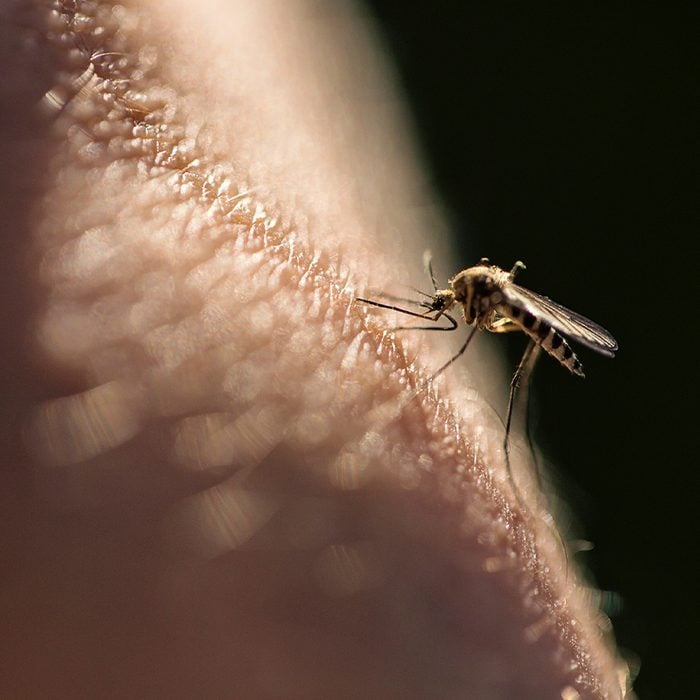
On June 26, 2023, the Centers for Disease Control and Prevention (CDC) issued a Health Advisory to notify healthcare professionals, government authorities and the public that cases of “locally acquired malaria” had been identified over the previous two months in Florida and Texas—the first non-imported malaria cases in 20 years. By July 18, NBC News reported that Florida health officials had identified a new case of malaria, bringing the total number of U.S. cases identified to eight since May 2023.
The CDC calls malaria “a serious and potentially fatal disease transmitted through the bite of an infective female anopheline mosquito.” So if summer has classically been a season when you work to protect yourself from mosquitoes, then this summer is definitely a good time to get serious about your defense.
According to the CDC, the first step to avoid mosquito bites is knowing which activities may increase your chances of getting bug bites. Activities such as hiking, camping, working with animals, and visiting farms and forested areas may lead to increased bug exposure, so you’ll want to be extra mindful and prepared ahead of time. You might also keep in mind that while it’s not a guarantee, areas with “dry heat” may often see fewer mosquitoes than those that experience greater humidity in summer. Periods of rain and mugginess can draw mosquitoes in greater volumes.
The 10 Itches You Should Never, Ever Scratch
If your ankles become a snack fest for bugs and you want to stay on the lookout for malaria symptoms, the CDC says: “For most people, symptoms begin 10 days to four weeks after infection, although a person may feel ill as early as seven days or as late as one year after infection.” Also according to the CDC, malaria symptoms can include: fever, chills, headache, myalgias (muscle pain), fatigue, nausea, vomiting, and diarrhea. The CDC explains that if malaria is not treated promptly, it may progress to severe disease, a life-threatening stage when cognitive changes, seizures, renal failure, acute respiratory distress syndrome, and coma may occur. “Malaria in pregnant people is associated with high risks of both maternal and perinatal morbidity and mortality,” the CDC adds.
Still, we promise: That’s not to take more fun out of summer! Best case scenario, if you’re just dealing with an itchy bite, experts recommend looking for mosquito bite treatments with calamine or steroids for more immediate relief. “Insect bite relief creams, such as Cortisone-10, often contain a low strength steroid, such as hydrocortisone 1%,” says dermatologist Chloe Goldman, MD, FAAD. “Topical steroids have a wide array of uses in dermatology, but simply put, they help reduce inflammation—think redness and swelling—and the associated itch that comes along with bug bites. Topical steroids are my favorite products when it comes to quick itch relief,” Dr. Goldman says.
As difficult as it may be, Dr. Goldman highlights the importance of not scratching at bug bites, since it can lead to infection and delayed healing. So, how can you avoid mosquito bites in the first place? Below are six mosquito-repelling products designed to help you avoid mosquito bites, recommended by experts and outdoor enthusiasts.
This Is the #1 Worst Soap Fragrance for Repelling Mosquitoes, Says New Study
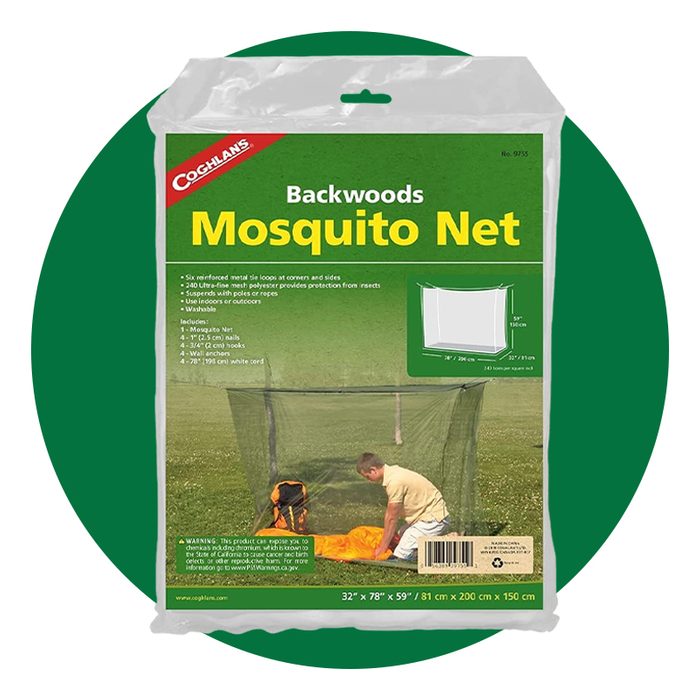
How to avoid mosquito bites
1. Coghlan’s Rectangular Mosquito Net
The Centers for Disease Control and Prevention recommends sleeping under a mosquito net if you’re going to be outside or inside an unscreened room, since mosquitoes can also live indoors. This Amazon best-seller has more than 1,000 five-star reviews left by shoppers who’ve already used the tent for themselves.
“These worked out just right,” one reviewer said. “Used in an old canvas walled tent with entry/openings at each end and hung these from the tent structure over the cots. No bug bites in the tent all week.”
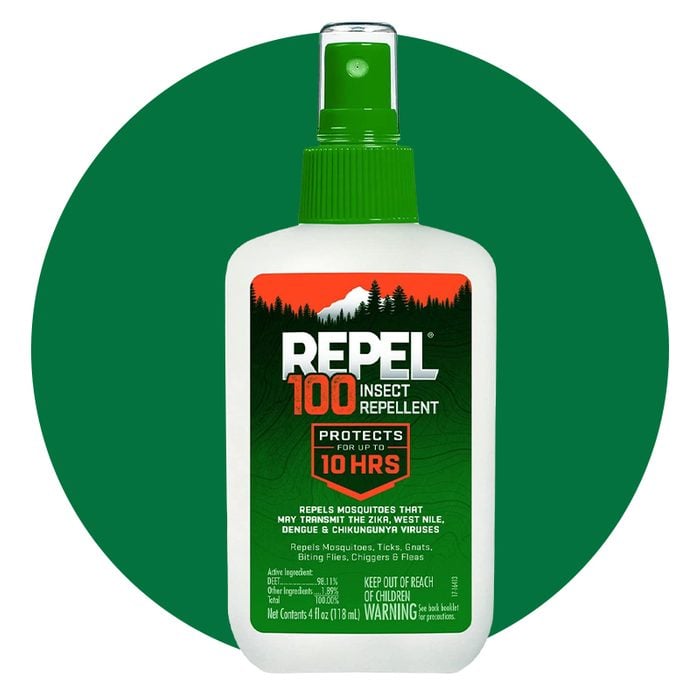
2. Repel 100 Insect Repellent
When it comes to spray on insect repellents, some just don’t live up to the claims. Repel’s 100 Insect Repellent is formulated to last for 10 hours and has more than 6,900 glowing reviews left by hikers, campers, and shoppers who say it “works like a dream.” Because it’s made with 98.11% DEET, it can help protect in heavily bug-infested conditions.
Note DEET comes recommended by the CDC in some cases, but talk with your doctor if you’re unsure whether it’s appropriate for you or your family.

3. BuggyBands Mosquito Bracelets
For a more wearable option to help you avoid mosquito bites, mosquito-repelling bracelets can do the trick. If you have sensitive skin or prefer to avoid chemical repellents, the bracelet’s formula of all-natural essential oils including geraniol, lemongrass, citronella are a good alternative. “Went to Tulum for a week and not one bite,” said one five-star reviewer. “I wore one on each wrist and one on my ankle.”
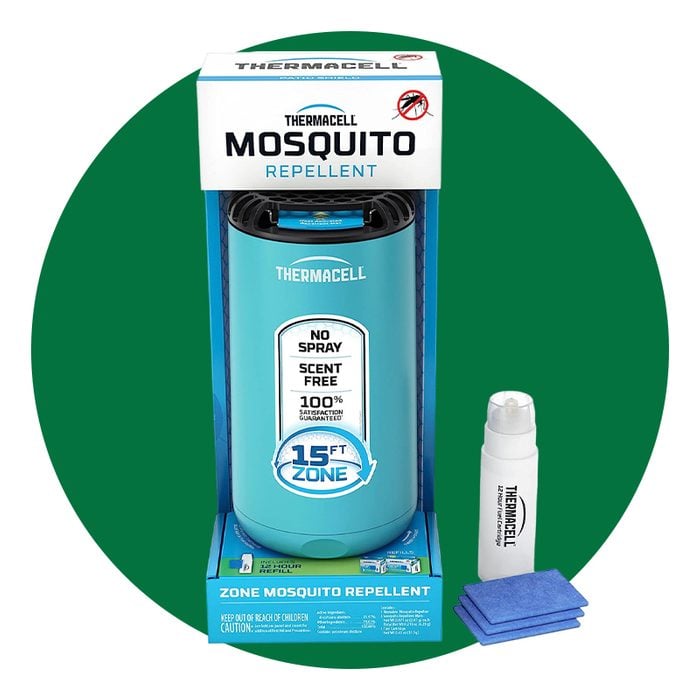
4. Thermacell Patio Shield Mosquito Repeller
If keeping mosquitos off your patio or outdoor space is a struggle, you may want to ditch the tiki torches and call in the help of something a bit more serious. And according to the more than 25,659 perfect ratings left by Amazon shoppers, you don’t have to look any further than Thermacell’s Mosquito Repellent Patio Shield. The best-selling ultrasonic repeller is powered by a compact 12-hour fuel cartridge that emits a scent-free repellent, so you don’t have to fuss with any cords or batteries.
A five-star review from one shopper reads: “We use this on our balcony where we like to dine in the summer and it has made a huge difference. My wife is a mosquito magnet and prior to this device would not consider going outside for dinner. Once this is operating for a few minutes the mosquitoes, which previously were everywhere, just leave.”
10 Skin Care Changes You Should Make This Summer, from Dermatologists

5. Murphy’s Naturals Mosquito Repellent Candle
By pairing together the plant-based repellents of rosemary, peppermint, citronella oil, lemongrass oil and cedarwood oil, each of these shopper-approved candles will deliver a burntime of 30 hours of bug-free enjoyment.
One reviewer who swears by the bug-repelling candle says: “I have tried numerous mosquito repellant options—the sprays, lotions, candles, even bug zappers. This however is the ONLY product that works and consistently works. I frequent my porch during the summertime like everyone else and these candles, as simple as it sounds, have finally given me the freedom to not have to wear winter gear in order to avoid being eaten alive.”
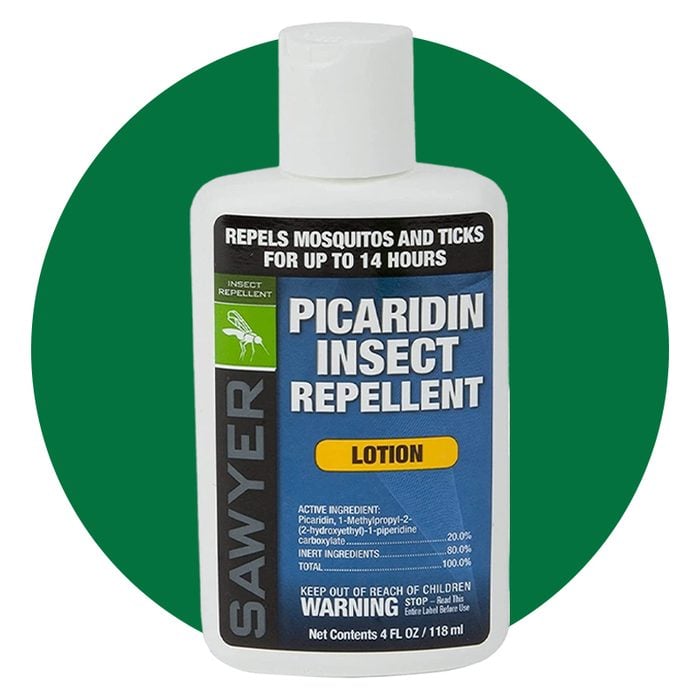
6. Sawyer Products Insect Repellent Lotion
Since it’s made with 20% Picaridin, which comes recommended by the CDC as a EPA-registered insect repellent, this lotion is formulated to last up to 14 hours against mosquitoes and ticks. Plus, it’s fragrance-free and meant to last longer than traditional repellent sprays.
“Living in the woods in the middle of Alaska, where giant swarms of mosquitoes attack us every time that we go outside, I can confirm that this stuff works really well,” one reviewer said. “Spring and summer here are absolutely miserable without mosquito repellant … The 20% picaridin repellents are, by far, the best that I’ve found for keeping the vampires from eating me.”
Get The Healthy @Reader’s Digest newsletter and follow us on Facebook and Instagram for more. Keep reading:
Is Walking Barefoot Bad For Your Feet?
I Had Mushroom Coffee Every Day for a Week—Here’s What Happened
Using Your Phone for This Many Hours Daily Causes High Blood Pressure, Says New Study
